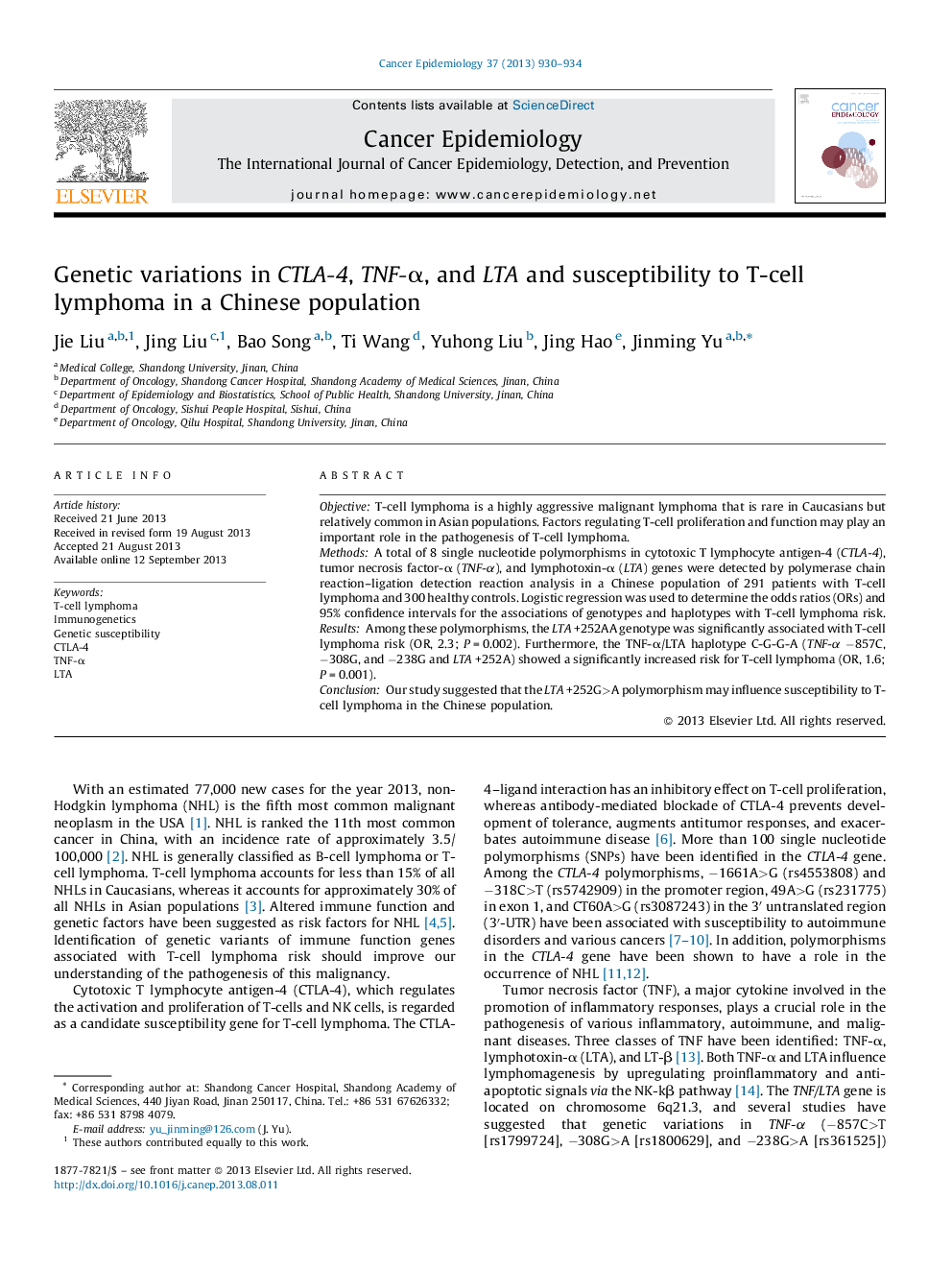| Article ID | Journal | Published Year | Pages | File Type |
|---|---|---|---|---|
| 2108860 | Cancer Epidemiology | 2013 | 5 Pages |
ObjectiveT-cell lymphoma is a highly aggressive malignant lymphoma that is rare in Caucasians but relatively common in Asian populations. Factors regulating T-cell proliferation and function may play an important role in the pathogenesis of T-cell lymphoma.MethodsA total of 8 single nucleotide polymorphisms in cytotoxic T lymphocyte antigen-4 (CTLA-4), tumor necrosis factor-α (TNF-α), and lymphotoxin-α (LTA) genes were detected by polymerase chain reaction–ligation detection reaction analysis in a Chinese population of 291 patients with T-cell lymphoma and 300 healthy controls. Logistic regression was used to determine the odds ratios (ORs) and 95% confidence intervals for the associations of genotypes and haplotypes with T-cell lymphoma risk.ResultsAmong these polymorphisms, the LTA +252AA genotype was significantly associated with T-cell lymphoma risk (OR, 2.3; P = 0.002). Furthermore, the TNF-α/LTA haplotype C-G-G-A (TNF-α −857C, −308G, and −238G and LTA +252A) showed a significantly increased risk for T-cell lymphoma (OR, 1.6; P = 0.001).ConclusionOur study suggested that the LTA +252G>A polymorphism may influence susceptibility to T-cell lymphoma in the Chinese population.
